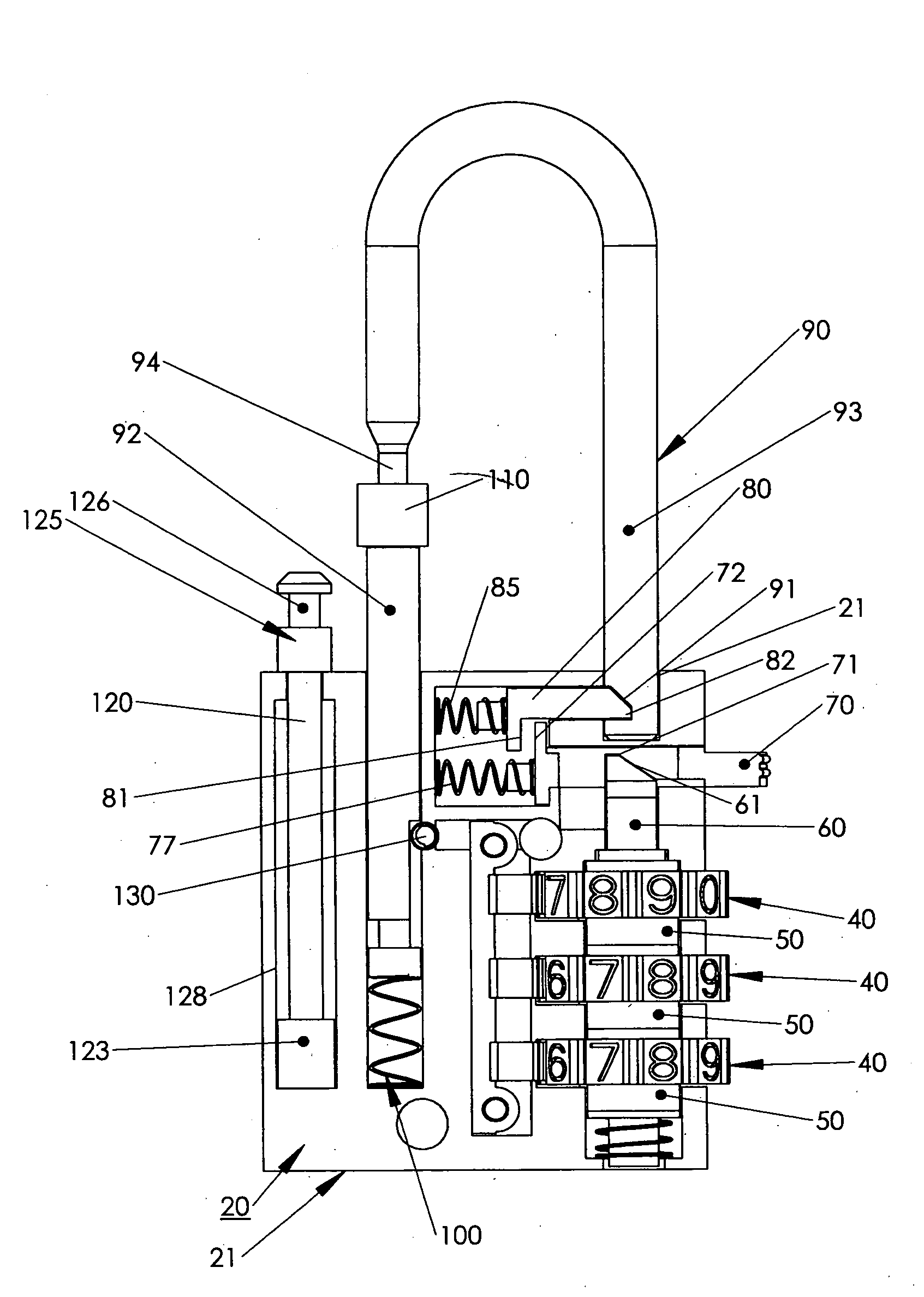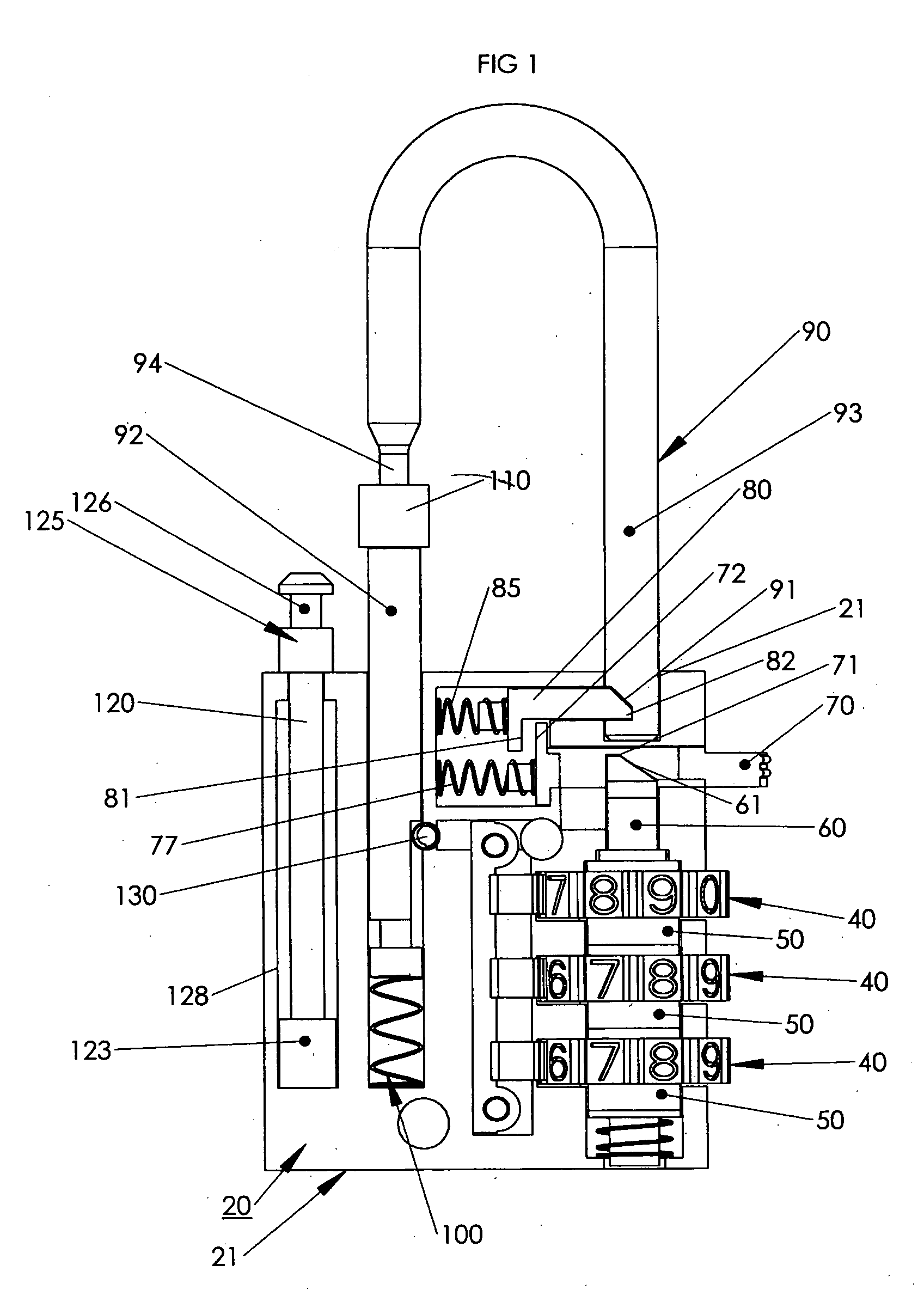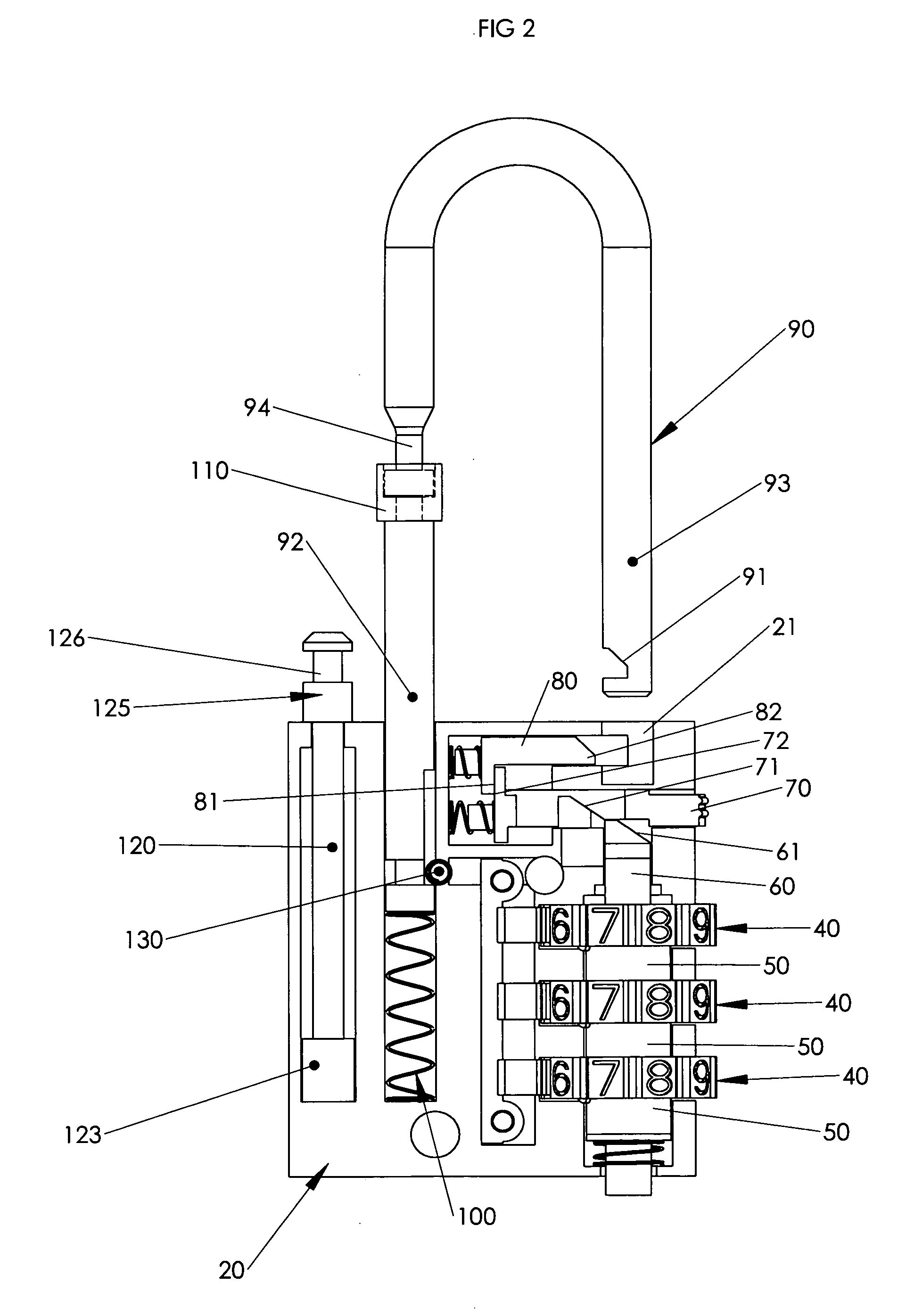Security padlock having a secondary locking system
a secondary locking and padlock technology, applied in padlocks, building locks, constructions, etc., can solve the problems of reducing the service life of the cylinder plug, the difficulty of manufacturing cylinder plug components, and the inability to manufacture cylinder plugs, etc., to achieve the effect of effectively severing the shackle, reducing the diameter, and reducing the cost of manufacturing
- Summary
- Abstract
- Description
- Claims
- Application Information
AI Technical Summary
Benefits of technology
Problems solved by technology
Method used
Image
Examples
Embodiment Construction
[0099]By referring to FIGS. 1-56, along with the following detailed discussion, the construction and operation of several alternate embodiments of padlock 20 of the present invention can best be understood. It is to be noted, however, that the preferred alternate embodiments of the present invention are depicted in FIGS. 1-56, and detailed below. However, variations, further alternate constructions, and further configurations of the padlock of the present invention can be made without departing from the scope of this invention. Consequently, it is to be understood that this disclosure is provided for exemplary purposes only and should not be considered as a limitation of the present invention.
[0100]In FIGS. 1-17 one preferred construction of padlock 20 of the present invention is fully depicted incorporating a combination controlled locking section. In addition to showing various alternate views of the fully assembled padlock 20 of the present invention, these figures also provide d...
PUM
 Login to View More
Login to View More Abstract
Description
Claims
Application Information
 Login to View More
Login to View More - R&D
- Intellectual Property
- Life Sciences
- Materials
- Tech Scout
- Unparalleled Data Quality
- Higher Quality Content
- 60% Fewer Hallucinations
Browse by: Latest US Patents, China's latest patents, Technical Efficacy Thesaurus, Application Domain, Technology Topic, Popular Technical Reports.
© 2025 PatSnap. All rights reserved.Legal|Privacy policy|Modern Slavery Act Transparency Statement|Sitemap|About US| Contact US: help@patsnap.com



